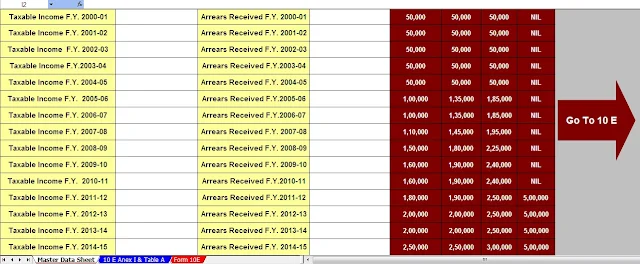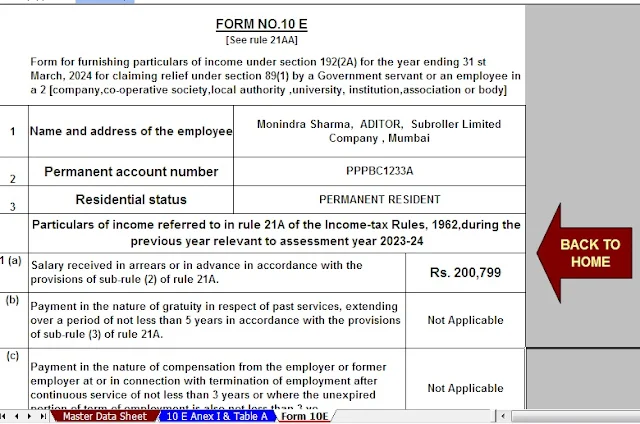The five most important sections of income tax| Anyone who earns income in the state is responsible
for paying income tax. The Income Tax Law consists of different articles that deal separately with
various aspects of taxation in the country. In addition, this law also provides taxpayers with several
income tax deductions that they can claim when filing their Income Tax Returns (ITR). Once the
deductions have been made, the tax will be charged on the total tax base according to the rates of the
taxpayer's income tax bracket.
Income Tax Act has 23 chapters
in total and 298 sections, according to the official website of the Department
of Income Tax. Although it is very tedious to review all the sections and
chapters of the income tax, the Income Tax Administration encourages taxpayers
to take advantage of the deductions and rebates provided for in the Income Tax Law, to reduce the amount subject to tax.
However, there are five sections in
particular that every taxpayer should know, which will be especially useful
when he decides to invest his group in one of the investment vehicles.
Download and Prepare at a time 50 Employees Form 16 Part B for the Financial Year 2021-22
Section 80C - Tax deduction on
investments
Section 80C of the Income Tax Act allows deductions for investments made in certain instruments. Two of the most popular are tax-saving mutual funds and tax-saving fixed deposits. Tax-saving mutual funds are equity-oriented; This means that at least 65% of its entities must invest in inequality.
The Equity Linked Savings Scheme
(ELSS) comes with a 3-year lock-in period of a minimum of 80% of the group
invested in the shares and is eligible for tax deductions of up to Rs. 1.5
lakhs under Section 80C of the Income Tax Act.
Similarly, a tax-saving fixed deposit system has a maturity of at least 5 years, with a maximum deduction of
Rs. 1.5 lakhs an investor can claim. Tax on interest earned in excess of 10%
will be based on the rates in the personal income tax bracket.
You can invest in time deposits
with returns of up to 8.35% at Finserv Markets (with an additional 0.25% above
current senior rates). You can choose between flexible tenures ranging from 12
months to 5 years and benefit from guaranteed returns.
Deduction 80CCC - Tax Deduction for
Contribution to Pension Funds
As a result of an attempt to encourage taxpayers to begin investing in pension funds, Section 80CCC provides an income tax deduction for Chapter VI-A pension funds from the taxpayer's gross gross income for that tax year. . This provides a tax deduction for any amount paid or deposited in the annual premium plan of any insurance company (LIC or other). Also, the maximum deduction that can be claimed through Section 80CCC is Rs. 1.5 lakhs.
Download and Prepare at a time 50 Employees Form 16 Part A&B
for the Financial Year 2021-22
Section 80CCD - Tax Deduction for
Contribution to the National Pension Scheme
Section 80CCD establishes income
tax deductions for contributions to the National Pension System (NPS). Also,
the maximum deduction that can be claimed from Section 80CCD (1) is 10% in the
case of a salaried person (employee) from non-employees (self-employed).
Section 80CCD (1B) entitled to get
an additional deduction of up to Rupees Fifty Thousand for the group deposited
by the individual into their NPS account.
Section 80CCD(2) allows individuals
to claim an additional deduction on their contribution to an employee's pension
account of up to 10% of their salary.
Section 80TTA - Tax exemption for
interest on a savings account
Under Section 80TTA of the Income
Tax Act (Chapter VI-A), individuals can claim an exemption of up to Rs. 10,000
per year of interest earned on deposits in savings accounts held in banks, post
offices or cooperatives.
Section 80TTB - Interest Income Tax
Exemption for Seniors Citizen above 60 Years Age.
According to the 80 TTB section of the Income Tax Law, seniors (age 60 and over) can claim tax credits on the interest income from deposits they hold. The maximum allowable deduction in a financial year is Rs. 50000.






